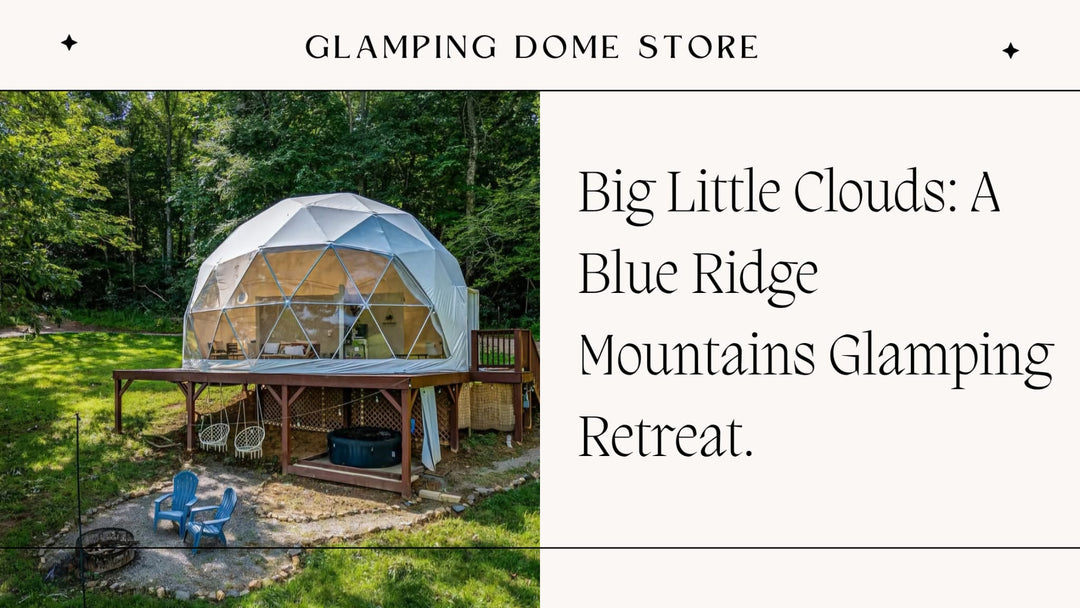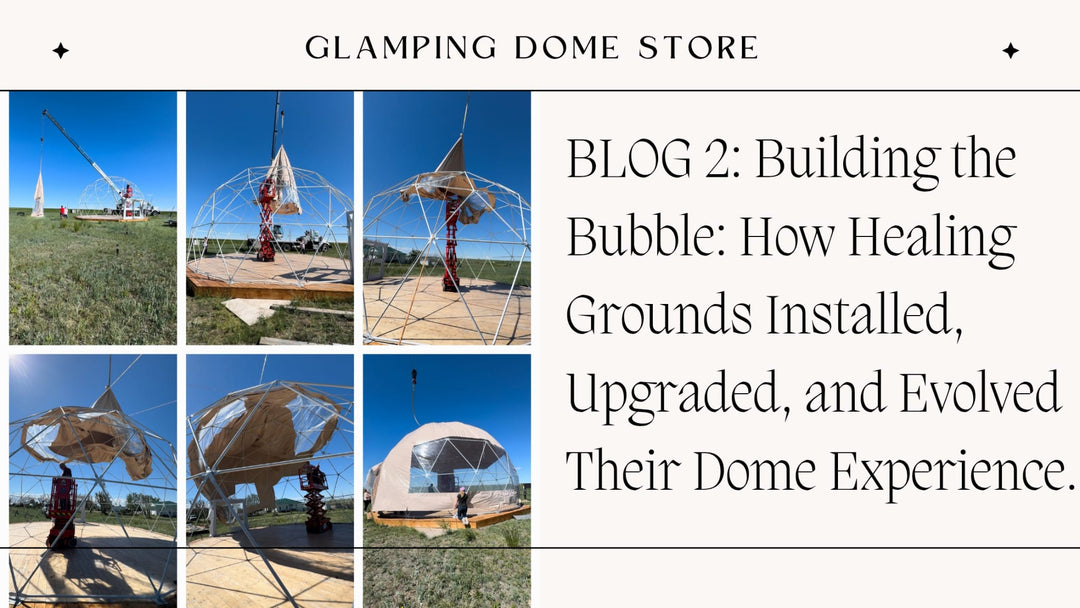A continuation of our permitting guide, covering advanced steps and considerations for dome-based sites.
Permitting for Glamping Site: PART II.
In the previous blog, we discussed the differences between the zoning requirements, the importance of doing research and knowing the terminology, and the and the best practices for communicating with local building offices.
Let's discuss how someone can get in touch with a planner or land use consultant, if you decide to hire one. Can you find one on Google? Or the Yellow Pages? Or ask at the local building authority office?
First, what you should know is that planners are not locally licensed professionals. They do not need to be certified in a particular state or province. And with the zoning law having similar principles, some sort of consulting can be done virtually from anywhere. You can hire a planner from another state or province.
But if you can get a local professional who already knows the local requirements and knows the people at the public and building offices, it makes more sense to work with him.
You may ask at the county office for a referral, but in many cases, they are not able to provide one. The reason is that they may get sued for referring to and favouring one planner over another.
What you can do to find a local land use consultant is to read through the planning minutes of the zoning commission. Throughout the minutes, you will notice names that appear repeatedly. There is a good chance that these are the professionals you can reach out to. Even if they are not able to help, they may recommend someone or point you in the right direction.

The next topic we should discuss is your neighbours or potential neighbours. Let's just say that other people have the authority to tell you what you can and cannot do on YOUR property. These people are your neighbours.
It sounds pretty extreme, but it is true. In North America, 99.9% of land use and building code enforcement is done on a complaint basis. There are simply not enough human resources to go out and look for infringements and violations like the police do. So, in a majority of cases, it is the neighbours who complain and bring the situation to the attention of land use enforcement officers.
Often, the officer just wants to make sure that the complaint is valid and asks you to eliminate it. They are usually not there to run a thorough check on every little thing you have going on. Once they establish that there is a violation, they must give you a notice and demand that you fix it. As public servants, they are now liable for any damage that may happen as a result of the violation. So, please do take it seriously. The whole reason for the enforcement is public safety.
Back before zoning began to regulate land use, you could have the worst industrial facility built right next to your house, with all your small children and elderly grandparents. Zoning was created to prevent bad things like this from happening. It all comes down to public welfare and safety. So, the zoning code and its enforcement are in everybody's best interest.
Furthermore, neighbours can play a significant role in the discretionary approval of variances, special permits, and rezonings.
The chain goes like this. Your special use or rezoning application eventually goes to public hearings. At some point, it is heard by an elected official who answers to the people of the community. Your neighbours are a part of the community. This elected official wants to be, one, re-elected; and two, he is there to protect the rights of those people. If the community does not want it (special use of the land or rezoning of the land), it is very likely that the official will stop the permit or rezoning process and will not approve it.
Do you see how the neighbours and people of the community can affect the decision? And if the neighbours do not really want the land to be rezoned and feel negative about it, do you really want to build your business in this location?
A neighbour who gets involved in whatever you want to do on that land is likely will try to control every aspect of your business in the future, which is a big red flag. Even if all the other components of the land deal look great, this one problem can ruin the whole business before it even starts.
Shared access or a road to the property is another deal breaker. As your glamping location becomes more successful, the increased traffic may not be okay with the neighbours.
However, imagine the opposite. It is possible that the neighbours adore you and your company and are unconcerned about traffic or people having a good time on your property. It all seems great, and you continue developing your property with new structures, thinking you do not really need any local authority approval. Nobody will complain, right? Wrong. One day you may have to do a larger project that requires a permit or a visit from the local building department. When they see all the development that was done without their approval, you may get a violation notice. So, beware and stay on top of the legal part of your land development.

The next thing on our list of questions is the scale of the project. Does a larger operation and land require more involvement with the law and local authorities and more soil studies, engineering, etc.? Or if it doesn't really matter, do small or big projects have the same amount of hustle and headaches?
Generally, the first one is true, but there can be major exceptions. And again, it all comes down to the specific location, municipality, or county. From our customer's experience with geodesic domes, we know that in some counties in the USA, the domes are considered "pole and fabric" temporary structures and do not require anything under a certain size. In other counties, the domes are treated basically the same as framed houses and must comply with all the same building codes. So, the best thing you can do is to check with your local building authority if you need to comply with any additional requirements for the specific structure type, size of the structure, and number of units.
Want to learn fine details about the business side of Tiny Homes, Glamping, Domes, Tents, and everything in between?.. We recommend @keepittiny.media on Instagram or visit the website - www.keepittinymedia.com.
(to be continued...)




